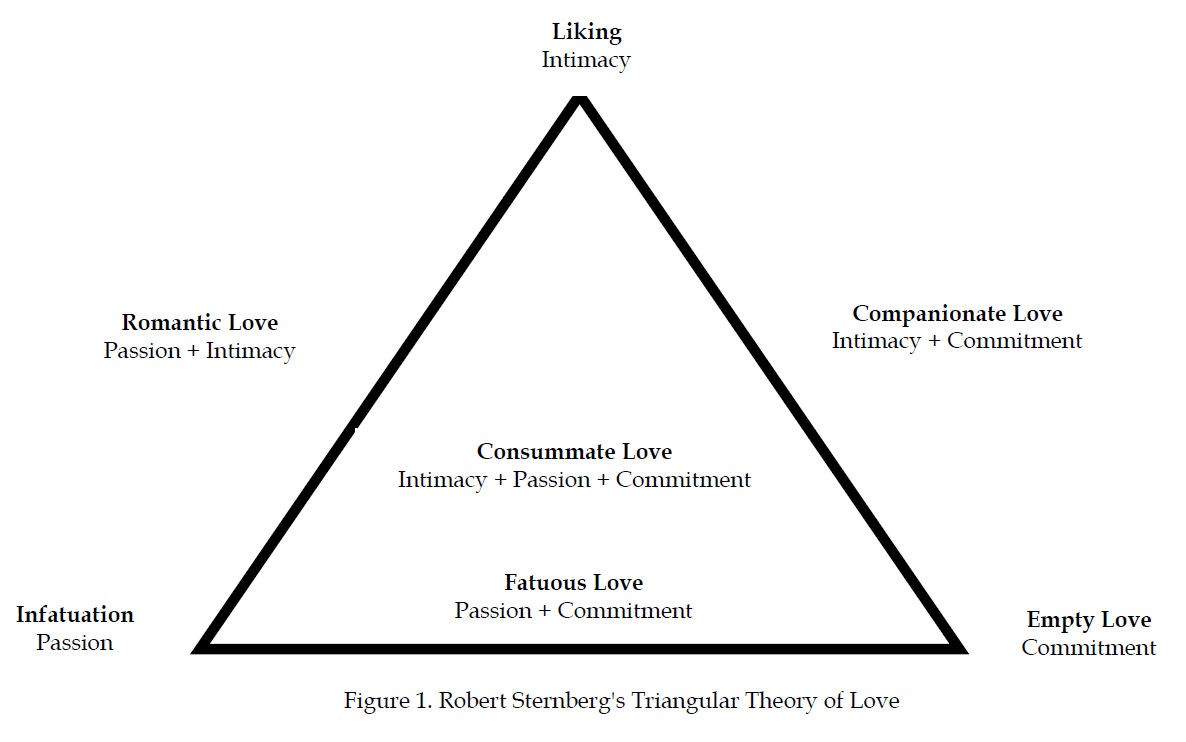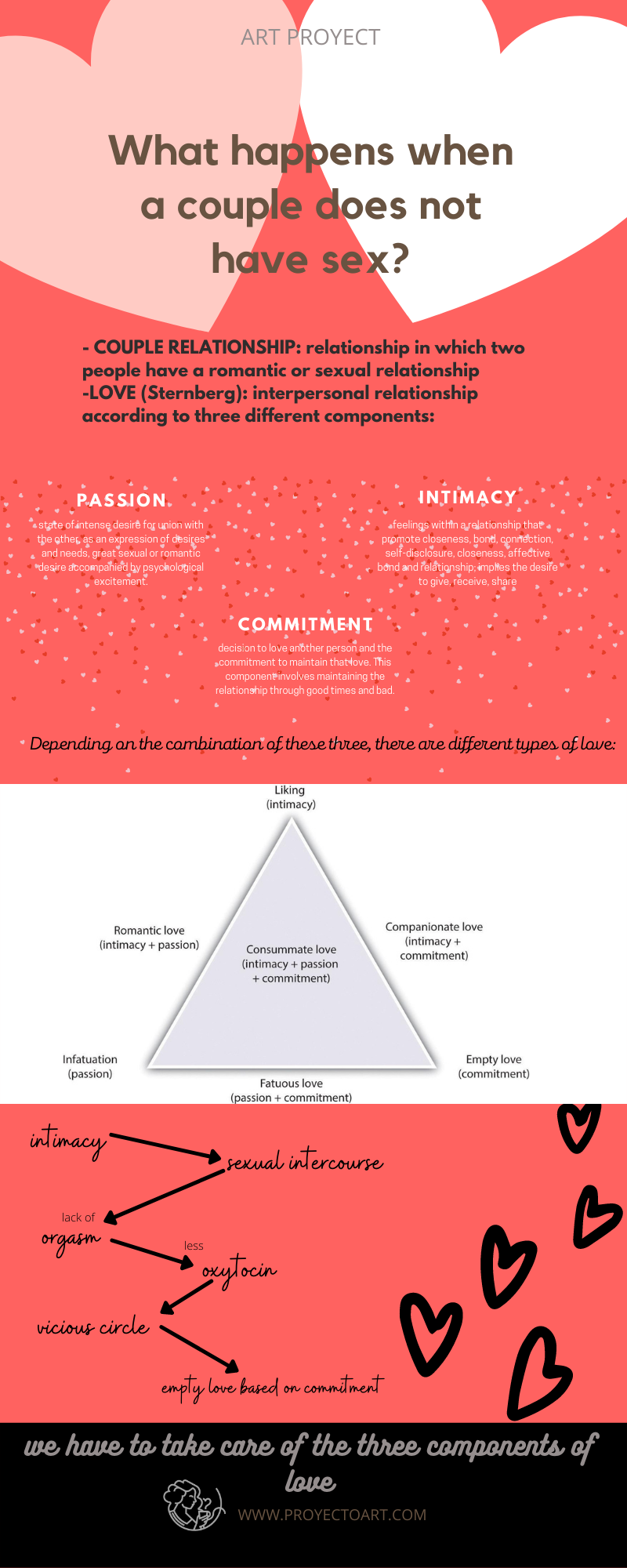Wednesday 28/4/2021
PFOTO: Alexander Krivitskiy
Text: Alejandra Misiolek
Is a couple who does not have sex still considered a couple? Is it something that should be accepted or something that should be worked on in therapy? Or is a couple no longer a couple when their sex life disappears?
These and many other questions related to sexual life are frequent in many couples but sex is still somewhat taboo and sometimes we find it difficult to talk about it. In addition, boasting about a satisfying sex life and not speaking honestly about it is very common in our society.
To answer these questions, let’s start by defining what a romantic or couple relationship is. According to Webster‘s dictionary of the English language, a couple relationship is a when two people have a relationship of a romantic or sexual nature. We could also say that they are united by love of a romantic nature.
Let’s take a step back, let’s look at what love is. There are different types of love and different models that describe and define them but a classic theory in psychology is Sternberg´s Love Triangle, which describes love as an interpersonal relationship based on three different components: intimacy, passion and commitment.
Intimacy are those feelings within a relationship that promote closeness, bond, connection and especially self-disclosure. We can also define it as feelings which imply the desire to give, receive, share, etc.
Passion is a state of intense desire for union with the other, as an expression of desires and needs, great sexual or romantic desire accompanied by psychological excitement.
Commitment is the decision to love another person and the commitment to maintain that love. This component involves maintaining the relationship through good times and bad.
The different stages or types of love can be explained with different combinations of these elements. We can observe them graphically in the following image:

From the combination of these love components we can differentiate 7 types of relationships:
- Liking/friendship: This type of love is intimacy without passion or commitment. This includes friendships and acquaintances.
- Fatuous love: has points of passion and commitment but no intimacy. An example of this is “love at first sight”.
- Empty love: is characterized by commitment without intimacy or passion. There are no strong feelings towards each other but a feeling of respect and reciprocity. In arranged marriages, relationships often begin with empty love.
- Romantic love: This love is passionate and intimate but has no commitment. This could be considered a romantic affair or could be a one-night stand.
- Companionate love is an intimate, non-passionate type of love that is stronger than friendship because of the element of long-term commitment. This type of love is observed in long-term marriages where passion is no longer present but where a deep affection and commitment remain.
- Infatuated love: is passion without intimacy or commitment. Romantic relationships often start out as infatuated love and become romantic love as intimacy develops over time. Without developing intimacy or commitment, infatuated love may disappear suddenly.
- Consummate love: It is the complete form of love. It represents the ideal relationship that we all want to go towards. However, Sternberg points out that maintaining a consummate love can be even more difficult than reaching it.
If we now return to our question of what happens if a couple does not have sexual relations, we can conclude that it is not a consummate or complete love. But the question is if what is missing is the sexual act or everything related to passion? If passion is lacking, then we speak of the love of companions. This type of love is “the same” that we can have with a friend or a brother.
On the other hand, the question arises if the only thing missing is passion? The lack of sex is the cause, the consequence or the dog chasing its own tail? Intimacy is reinforced by sexual intercourse, both on a psychological and physiological level. The shared orgasm causes the release of oxytocin, a neuromodulator that regulates social and sentimental behaviors, sexual patterns and parental behavior and is involved in the recognition and establishment of social relationships and in the formation of relationships of trust, generosity, altruism and empathy between people. For this reason, the lack of sexual relations can generate a vicious circle in which the lack of intimacy causes withdrawal and it becomes every time more difficult to have sex and the lack of sexual relations can contribute to even less intimacy. In these cases we can gradually develop an empty love only based on commitment.
For all these reasons, it is important to remember that to ensure that our relationship is as healthy as possible and that it lasts, we have to take care of the all three components of love and the lack of sexual relations can contribute to the malfunction of the relationship, but also it may be a consequence of a malfunction of the other components.

Sources:
Sternberg, R. J. (1986). A triangular theory of love. Psychological review, 93(2), 119.
https://www.merriam-webster.com/
Image source:: Yousefvand, M., & Tatari, H. (2015). The Concept of Love in Dostoyevsky’s White Nights. International Journal of Applied Linguistics and English Literature, 4(4), 231-237.
